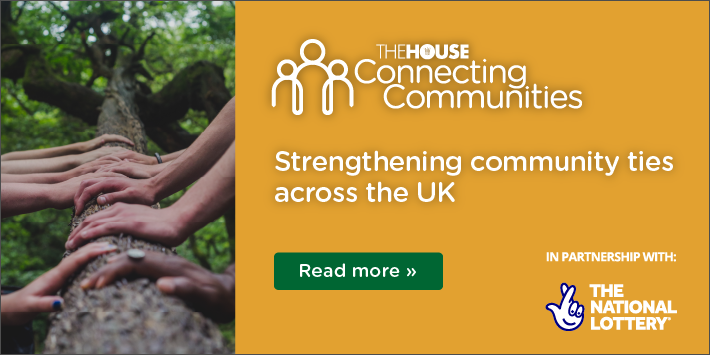No child’s education should be dependent on their internet connection
Measures must be put in place to help those children left behind by the lockdown, says Siobhain McDonagh MP | Credit: PA Images
4 min read
The closure of schools exposed the digital divide in our society. Lessons must be learnt from the last few months so that our young people do not fall even further behind.
After a long six-month absence from school, millions of children have finally returned for the start of a new term.
For the young women at the outstanding Ursuline Catholic Girl’s School in Merton, they may feel like they have never been away: though home schooling was disruptive, their guaranteed access to connectivity meant six online lessons a day with exercise classes, entertainment and contact with friends just a click away.
But for many of their peers, this month is their first time at school since March, with worrying data from the Children’s Commissioner revealing that around half of pupils had no access to online lessons at home.
I fear how far those young people will have fallen behind and we must all be concerned at how we can help them catch up.
The closure of schools exposed the digital divide in our society.
The Government talks about levelling up, but whilst 30% of private school pupils attended four or more online lessons per day during the lockdown, the same can be said for just 6.3% of state school pupils. And the problem is even worse than I first thought, with concerning new evidence from UCL’s Institute of Education revealing that almost a quarter of children entitled to free school meals completed no schoolwork or less than one hour per day during lockdown.
That’s not the school’s fault – only half of households earning between £6,000 and £10,000 had internet access, compared with 99% of households earning over £40,000.
In my constituency of Mitcham and Morden, our community mobilised at the beginning of the lockdown to run the #GetKidsConnected campaign, with organisations, charities and volunteers coming together to provide hundreds of children with tablets, data and the chance to continue schoolwork at home. A local solution to a national problem.
It is vital that connectivity is not a prerequisite for education.
But the Government was given every warning. Cross-party voices called on them to act.
Yet when they finally recognised the issue – offering 200,000 devices and 50,000 internet routers – it really was too little, too late, with Ofcom estimating that there are up to 1.78 million children with no access to a laptop, desktop or tablet. Meanwhile, the Government’s online lesson portal was of little support for those children on the wrong side of the digital divide. These children are overwhelmingly in the poorest households and already more likely to be behind.
It is vital that connectivity is not a prerequisite for education. Though schools have finally returned, local lockdowns continue and the future remains entirely unpredictable.
Lessons must be learnt from the difficult few months just gone so that our young people do not fall even further behind.
That’s why I am calling on the Government to ensure that all children entitled to free school meals have internet access and adequate devices at home.
It’s a low-cost proposal that would make an immediate, tangible difference to some of the most vulnerable children in our society.
Of course this doesn’t make up for months of lost learning. Measures must be put in place to help those children left behind by the lockdown. But society has changed and the digital divide grows by the day in our increasingly connected world.
Next week is the Government’s chance to intervene. My cross-party internet access Bill returns to the House of Commons for its Second Reading.
It’s a proposal that has the backing of over 40 leading voices in education, including four former Education Secretaries, four former Children’s Ministers, a former Head of Ofsted, the Chair of the Education Select Committee, cross-party MPs, leading children’s charities, education unions, academics, and even a former Prime Minister!
Because no matter your political party, surely we can all agree that no child’s education should be dependent on their internet connection.

